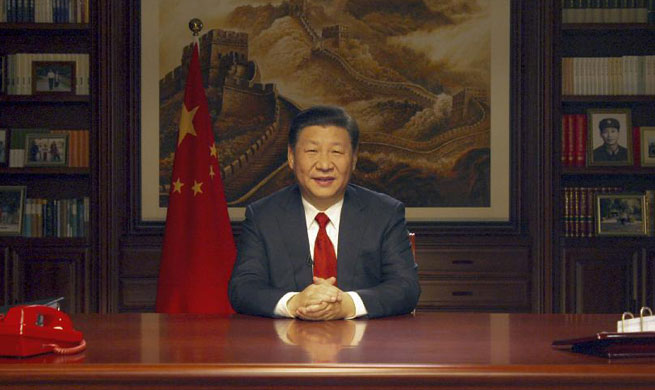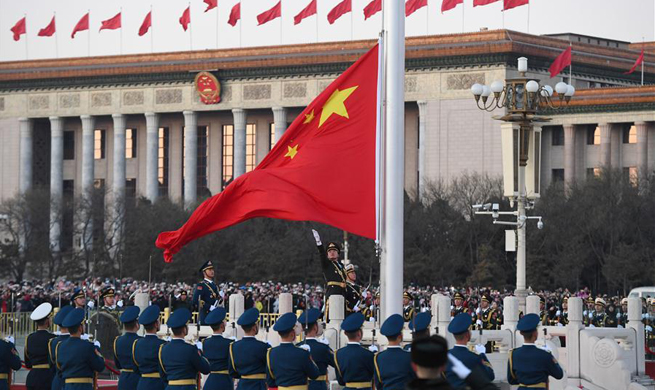BEIJING, Jan.1 (Xinhua) -- Apple farmers in Yijun County of northwest China's Shaanxi Province no longer need to overly worry about drops in apple prices, thanks to financial instruments that they may find difficult to understand.
By paying a small premium, the farmers can receive compensation from insurance companies if the market price falls below a specific amount. Conversely, insurers can buy financial derivatives on apples from futures companies, hedging their risks if the apple price rises too much.
The "insurance plus futures" hedging model came as China launched the world's first apple futures in late December, with the aim of stabilizing the earnings of farmers that rely on apple cultivation as a major source of income.
"The purpose of launching apple futures is not merely to have a new product, but to help the real economy," said Chen Huaping, president of the Zhengzhou Commodity Exchange.
It's not the only innovative products that China has launched on its growing commodity derivatives market. As authorities reiterate the role that financial services should play in the real economy, the futures market is setting a good example, helping farmers mitigate the risks of price volatilities.
FLEDGING MARKET
From apples to eggs, China has futures contracts for many commodities that are not easily found elsewhere.
Futures contracts obligate investors to buy or sell underlying assets at a predetermined price and at a specified time, helping investors hedge against uncertainties.
In the past five years, China launched 27 new futures contracts, accounting for almost half of the 55 contracts that are currently traded.
In April, China launched white sugar options, a derivative of futures, shortly after the launch of soybean meal options. In August, trading of cotton yarn futures started on the Zhengzhou Commodity Exchange.
In the years to come, the market is likely to see futures contracts covering a range of commodities including red dates, paper pulp and pigs, according to Fang Xinghai, deputy head of the China Securities Regulatory Commission.
"China's economic development is in an strategically important period, and the prospects for the futures market is very promising," Fang said.
STRENGTHENED SUPERVISION
While the futures market originated as a way for producers to lock in a stable income amid market fluctuations, it is not a market free from speculation.
As China stepped up financial supervision to rein in systemic risks, regulators of futures market also made efforts to correct irregularities.
The country's three commodity exchanges have been adjusting the margin deposit requirements on futures trading on a regular basis to prevent overheated market activities.
In November, the China Futures Association said it would guide futures companies in China to conduct the first comprehensive stress test to gauge the ability of firms to respond to a set of scenarios.
"Maintaining stability is the very foundation of development. We have always placed risk control as the top priority," said Li Zhengqiang, president of the Dalian Commodity Exchange.
The exchange has been conducting checks on the authenticity of hedging activities and punished those that violated the rules.
OPENING UP
While China is the world's largest consumer of many commodities, such as apples and iron ore, it still lacks the corresponding pricing power, partly due to a futures market that involves mainly domestic market participants.
"The lack of pricing power of commodities has become a barrier for trade, the internationalization of the yuan and China's participation in global economic governance," Li said.
To encourage more foreign participation in the domestic market, China announced that foreign businesses would be allowed to own up to 51 percent of shares in futures companies, and the cap would be phased out over three years.
"The widely expected launch of yuan-denominated crude oil futures is also a catalyst for the futures market to grow and will speed up the yuan's internationalization," according to Xu Weizhong, head of Huatai Futures. "Crude futures will become an important channel for foreign institutions to access China's market. With all these international institutions, China's futures market will become more influential."

















